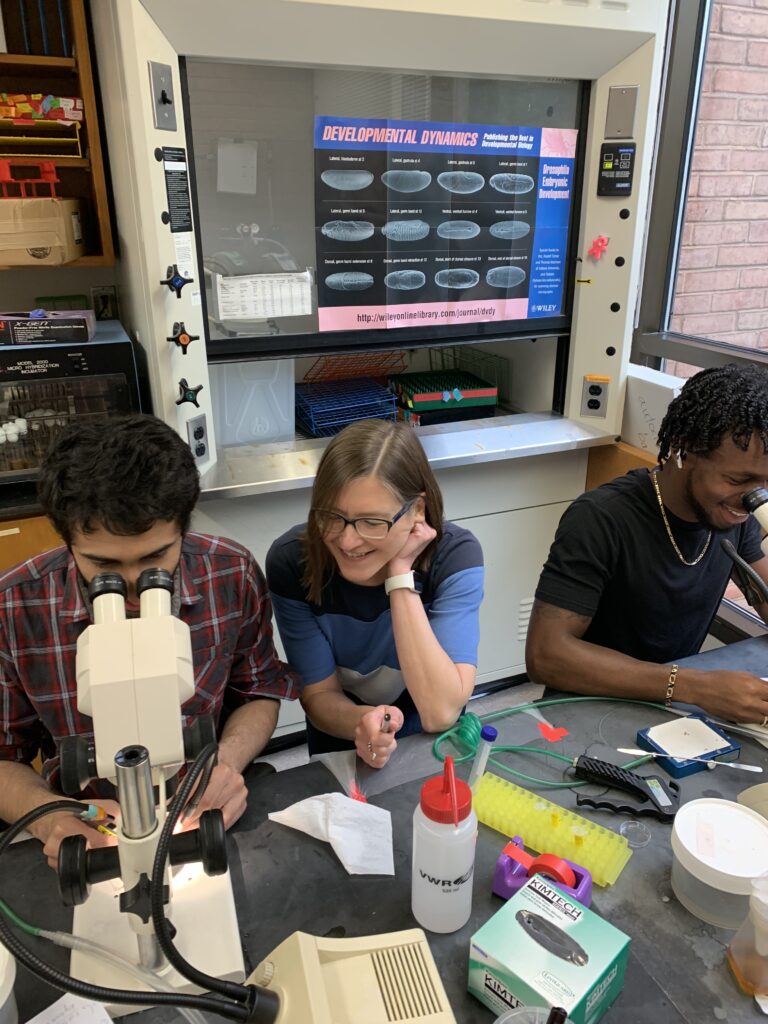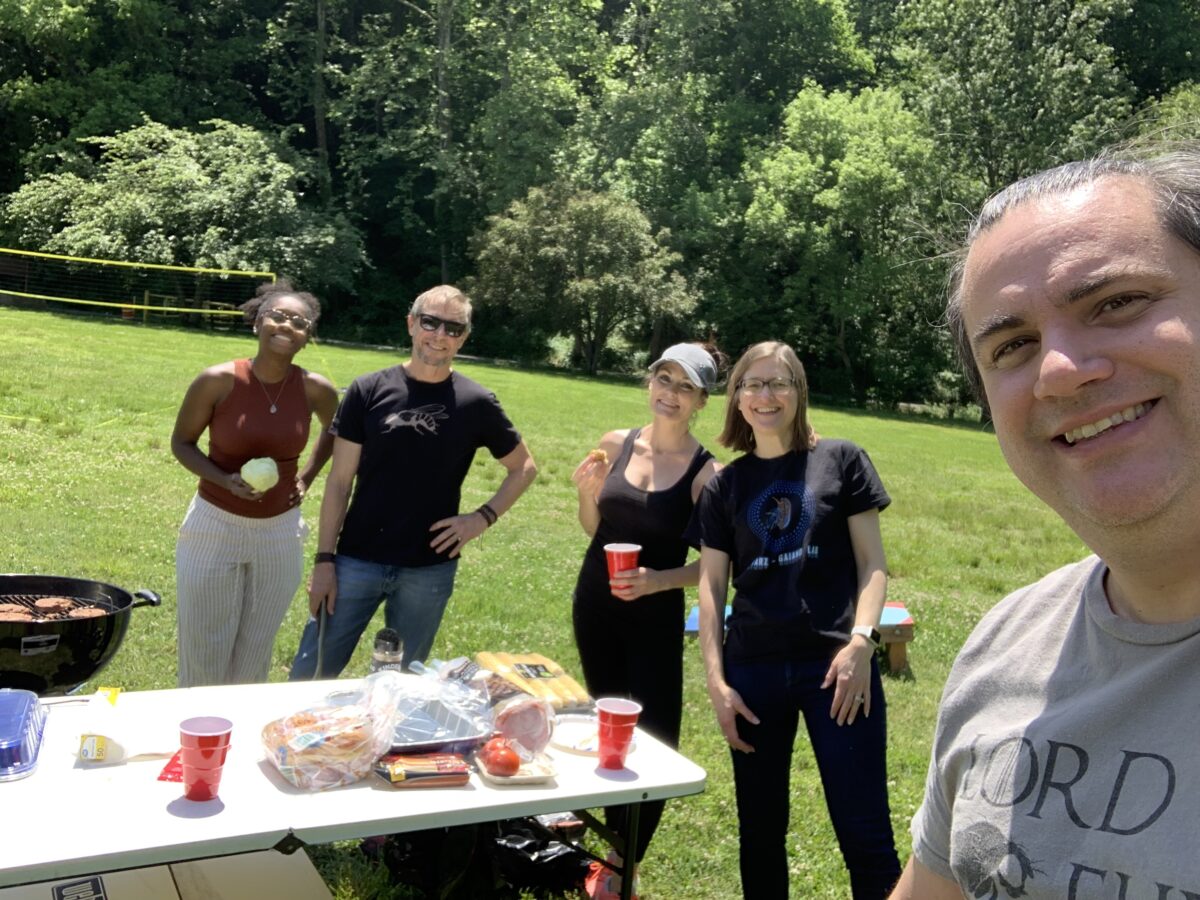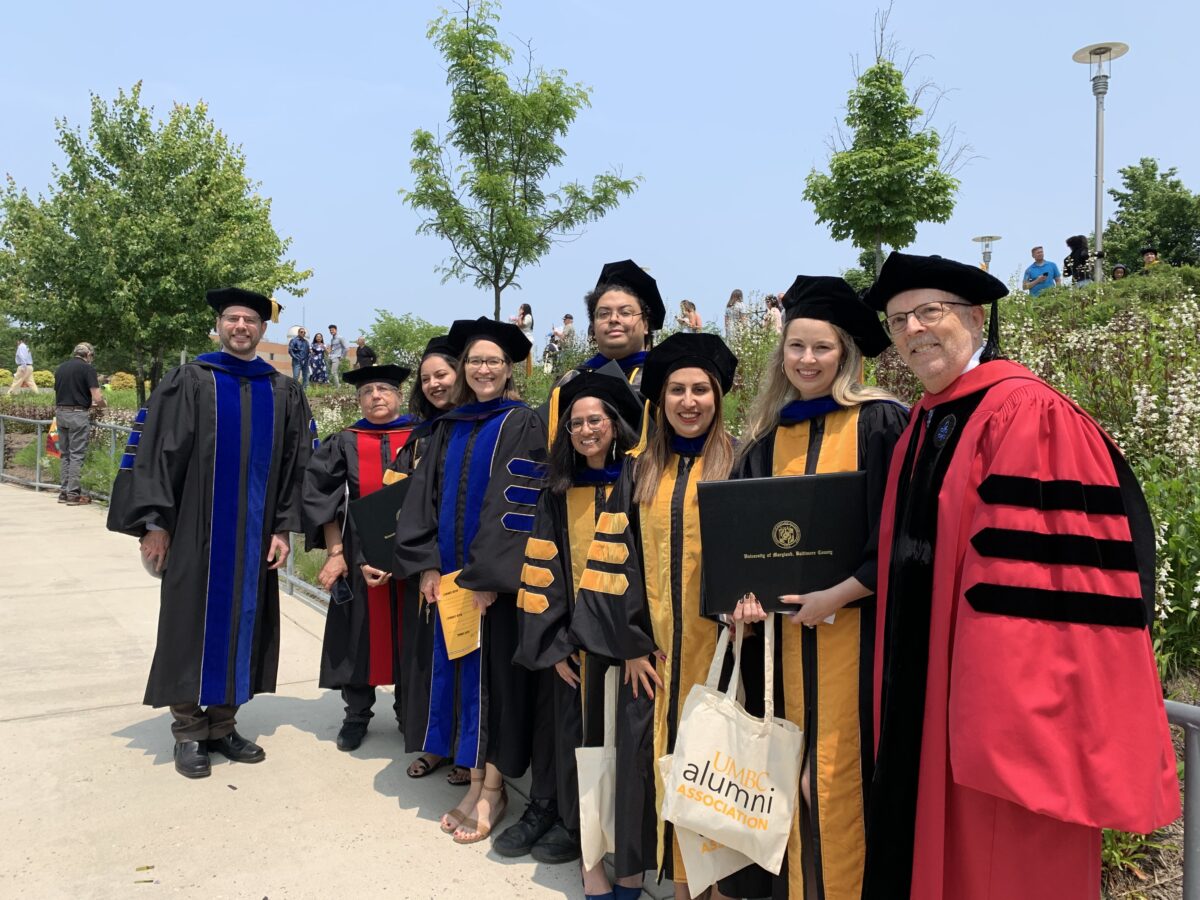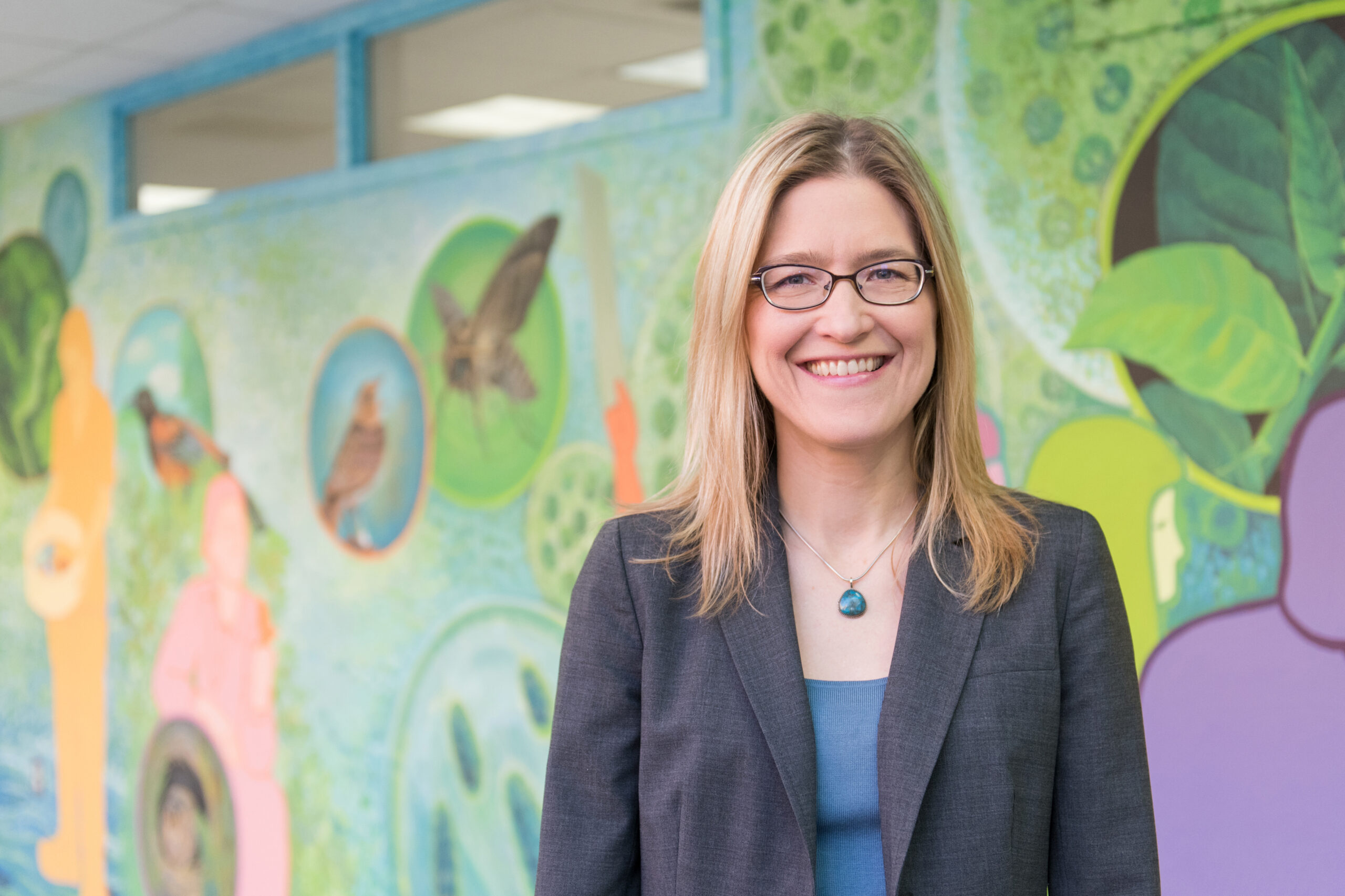Michelle Starz-Gaiano, professor of biological sciences, joined the UMBC faculty as an assistant professor in 2008, fresh from a postdoctoral fellowship at Johns Hopkins University. Since then, her research program has blossomed, she’s mentored half a dozen graduate students and more than 50 undergraduates, and she’s taken on numerous leadership roles. In 2014, she received the Donald Creighton Outstanding Faculty Member Award from the UMBC Graduate Student Association for her excellent mentorship.
This August, she’ll bring all of that experience to a new role: department chair. As department chair, Starz-Gaiano will be responsible for leading the department into a new era at UMBC, as well as managing day-to-day tasks from teaching assignments to faculty meetings. The role requires managerial skills as well as a deep understanding of the department and its needs.
“I think it’s an important time to step into the job,” Starz-Gaiano says, given setbacks like restricted lab access during the COVID-19 pandemic and recent flood damage in the Biological Sciences Building. “This gives us an opportunity to reevaluate what is working well and what we can improve on or change to make the department grow stronger. I think we have amazing people working and studying here, and I really want to make sure they can be successful.”
Starz-Gaiano has grown up as an independent researcher within the department. “That means that I know inside out what works well in the department and what we can do better,” she says.

A supportive environment
Starz-Gaiano didn’t come to UMBC expecting to be department chair one day, however. In fact, when she started her undergraduate career as a first-generation college student, she didn’t even know what a professor did. But with supportive mentors and colleagues—the same kind of support she now offers to others—she found her way.
The opportunity to do many different things as a faculty member was a good fit, Starz-Gaiano says, and UMBC, in particular, attracted her with its reputation for innovation. “It’s really cool to be in a place where we’re building new things and not entrenched in historical perspectives,” she says.
That innovation includes opportunities at UMBC for faculty to receive mentorship and gain important skills beyond their research discipline, such as in teaching, leadership, and management. Starz-Gaiano has taken advantage of many such opportunities. The College of Natural and Mathematical Sciences (CNMS) Entrepreneurial Skills Training program, a week of sessions led by Gib Mason ’95, economics; the Teacher Scholar Program from UMBC’s Faculty Development Center; and UMBC’s Women in Science and Engineering group all offered resources, support, and training opportunities as Starz-Gaiano’s career progressed, preparing her to take on future opportunities.
Paying mentorship forward
After gaining tenure, Starz-Gaiano became a mentor for the Teacher Scholar Program, and in 2015, she took on the role of graduate program director (GPD) in the biological sciences department. A GPD must do everything from support students experiencing challenges to enforce program policies and manage recruitment efforts. It requires effective mentoring of students and collaboration with colleagues.
“I benefited a lot from having good relationships with my mentors,” Starz-Gaiano says, so now she works hard to do the same for her mentees and every graduate student she meets.“It’s challenging to be a mentor, because everybody needs something different. And working that out means it’s never perfect. But being open to that reality is part of the strategy to make mentoring work well.”

Putting students first
Amanda Monahan, Ph.D. ’15, biological sciences, says that Starz-Gaiano’s adaptability is one of her biggest strengths as a mentor. “She is able to read and conform to her trainee’s personality, needs, and comfort. I was more independent and she gave me that leeway,” Monahan says, but “some people need a little more hands-on mentorship, and she will provide that in those cases. It is rare to see the level of adaptability that Dr. Starz-Gaiano is able and willing to offer.”
Monahan continued to turn to Starz-Gaiano for guidance after graduation, especially as she transitioned from a research role to one in scientific publishing. “Even though I was no longer her student, she listened to me and provided reassurance and advice throughout the entire process,” Monahan says. “This is just who she is. She will always put her students as a top priority, even when they are no longer her active students.”
For Philip Farabaugh, professor of biological sciences and the outgoing department chair, Starz-Gaiano’s outstanding work with graduate students makes her a natural choice to succeed him. “I have come to rely on Michelle in her role as the graduate program director,” he says. “Michelle has led the graduate committee to ensure we have the best possible students in our M.S. and Ph.D. programs and provided mentorship and friendship to all. Her work in this pivotal position showed me that she had all the skills and personality traits to make her a great department leader.”

Embracing change
As chair, Starz-Gaiano says she is “excited to get to know what my colleagues are doing even more. I’m hoping to be able to energize people around each other’s work,” noting that new hybrid work patterns can make it more difficult to keep up with colleagues. “I’m hoping we can build relationships a little more in the department and maybe beyond the department. I think there’s a lot of potential.”
She also wants to take advantage of university-level transitions, such as the new president and future new provost, to advocate for the department’s needs. Farabaugh supports that vision.
“Michelle has a clear sense of the direction the department should take to tap opportunities and meet challenges as UMBC adjusts to its new status as a Carnegie R1 institution, while making sure that we continue to provide the excellent undergraduate education and research training that UMBC is renowned for,” Farabaugh says. “I have the greatest respect for her as a colleague and am certain that she will be a terrific chair, the first woman to hold that position in our department.”
Building on strengths
While there is always room to grow, there are so many existing strengths to build on. “I think the research people are doing is exceptionally strong, and I think our department is great at meeting students where they are and helping them be successful, without taking on a sink or swim approach,” Starz-Gaiano says. “I think we have amazing teaching faculty. We have lecturers who not only do their job but do research in pedagogy and try to find best practices and then actually change their teaching based on their findings.”
To more junior faculty looking to find their footing, Starz-Gaiano says, “I think getting involved is really important, and doing the things that are of interest and important to you.” Starz-Gaiano has been doing that for 15 years at UMBC, resulting in lasting positive impact on her students and colleagues. As the new chair, there’s no sign of her stopping now.

